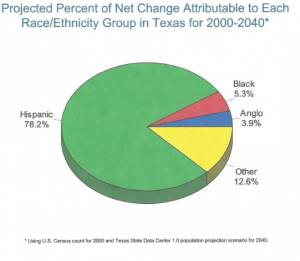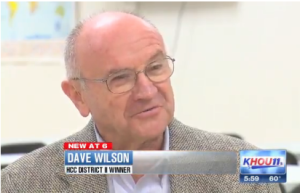The ongoing battle between the makers of Sriracha sauce and their hometown flared up again last week.

The Irwindale City Council has voted unanimously to declare the spicy smell of Sriracha hot sauce production a public nuisance.
Once the council adopts an expected official resolution at its next meeting, hot sauce maker Huy Fong Foods will have about 90 days to mitigate the odor, which residents say burns their eyes and throats at certain times of day.
The 4-0 vote during a Wednesday night hearing came despite assurances from company attorney John Tate that Huy Fong Foods planned to submit an action plan within 10 days and have the smell fixed by June 1.
Officials with the South Coast Air Quality Management District have been performing tests at the facility and have offered to help the company craft a mitigation plan. Although they would not release the test results, AQMD officials indicated that the smell issues could be resolved with active carbon filters — a technology the company has used in the past.
“The City Council is determined to assert its authority regardless of the status of the odor remediation efforts,” Tate said.
[…]
No demonstrators showed up Wednesday night. But state Sen. Ed Hernandez sent a representative to deliver a statement, calling Huy Fong Foods one of the “shining stars” of the San Gabriel Valley’s vibrant business community and offering to help the sauce maker find a home in a neighboring city.
“I ask that the city of Irwindale reject this inflammatory and unnecessary ‘public nuisance’ designation and constructively work with Huy Fong Foods to resolve these issues,” Hernandez said in a statement.
Councilman Albert Ambriz said that the city wants to keep the hot sauce factory.
“I respect the fact that they are here. But they know there’s a problem and it needs to be fixed,” Ambriz said.
The fuss is basically a tempest in a Rooster Sauce bottle.
But company owner David Tran, a Vietnamese immigrant who founded Huy Fong Foods in 1980, has insisted the odor concerns are overblown — and indeed there are signs the controversy may be as manufactured as Sriracha itself.
The South Coast Air Quality Management District, which includes Irwindale, has never issued a citation to the company and Sam Atwood, a spokesman for the district, says that many of the 70 odor complaints the district had received as of April 7 came from just a handful of households. The first person to file a formal complaint was the relative of a city official, according to court documents. Atwood says inspectors from the district visited the Huy Fong Foods factory and determined the company was not in violation of current air quality regulations. If a smell is bad enough that the district would take action, he says, “You’re going to get dozens if not hundreds of complaints.”
That hasn’t happened yet, but the factory remains in danger of being shut down. Irwindale officials have even said they may have the right to install air-filtering equipment inside the factory and bill Huy Fong Foods for the expense.
Some locals seem baffled by all the fuss. Tania Bueno, who owns a salon a few blocks from the factory, told TIME in February she’s never detected an odor from the Huy Fong Foods factory. “None of my clients have mentioned any smells.” Tran recently opened his doors for public tours to allow Irwindale residents to decide for themselves how strong the smell is.
But then maybe it’s more than that.
After a months-long battle with the city of Irwindale over complaints about a spicy odor, Sriracha sauce creator David Tran said Wednesday he is now seriously considering moving his factory to another location.
Tran responded Wednesday to the politicians and business leaders from 10 states and multiple cities in California that have offered to host the Sriracha factory. He invited them to tour the facility in Irwindale and decide if their communities would complain about the odors that arise during production.
Tran stressed he has not decided whether to move, but would like to explore his options.
The Irwindale City Council voted unanimously to designate the factory a public nuisance last Wednesday despite promises from the saucemaker that they would submit an action plan and fix the smell by June 1.
Tran said he fears the city won’t accept any solution he proposes. If Irwindale residents continue to complain even after smell-mitigation technology is installed, Sriracha’s legal troubles could have no end, Tran said.
“[City officials] tell you one thing, but think another,” Tran said in an interview at Huy Fong Foods on Wednesday. “I don’t want to sit here and wait to die.”
Irwindale City Attorney Fred Galante said he was confused and disappointed by Tran’s actions. Irwindale officials just want an action plan to be submitted, and Galante said that Tran has not proposed any solutions for the city to reject.
“This seems very extreme,” Galante said. “It’s disappointing giving that [air quality officials] have explained that there are readily available solutions.”
[…]
Relocating Sriracha production would not be simple. Tran has been working with a single pepper grower in Ventura County for years, and the businesses have shaped their operations around each other, expanding in tandem. Since peppers for Sriracha hot sauce must be fresh ground on the day they are harvested, Tran said he’ll have to find a new grower if he moves, as well as replace or relocate 60 to 200 employees.
Tran said his first choice is to stay in Irwindale, but the city government’s actions have created an uncertain business climate.
“I have had the bad luck to move into a city with a government that acts like a local king,” Tran said.
See here, here, and here for the background. State Rep. Jason Villalba has been beseeching Huy Fung Foods to consider moving to Texas, where we care a lot less about such niceties as clean air, and he’s back on Facebook pitching his message again. Until this week, his message had not been received by Huy Fung, but now Villalba may get his chance.
Villalba says he’s received a call from the Sriracha maker about setting up a meeting “as soon as possible.” Says the state rep, “We’re assembling our team now and getting ready to go to California.” That meeting will likely take place in early May, he says, and include Texas Commissioner of Agriculture Todd Staples and other state politicians.
“We’re pretty excited,” says Villalba.
Well, good luck with that, but as the title of this post suggests, I remain highly skeptical. Not being near their supplier of peppers would be a significant change to their business, and likely a significant cost increase. Lots of other groups are lining up to make their pitch as well, including other cities close by in California. Anything is possible, but I wouldn’t hold my breath.
























